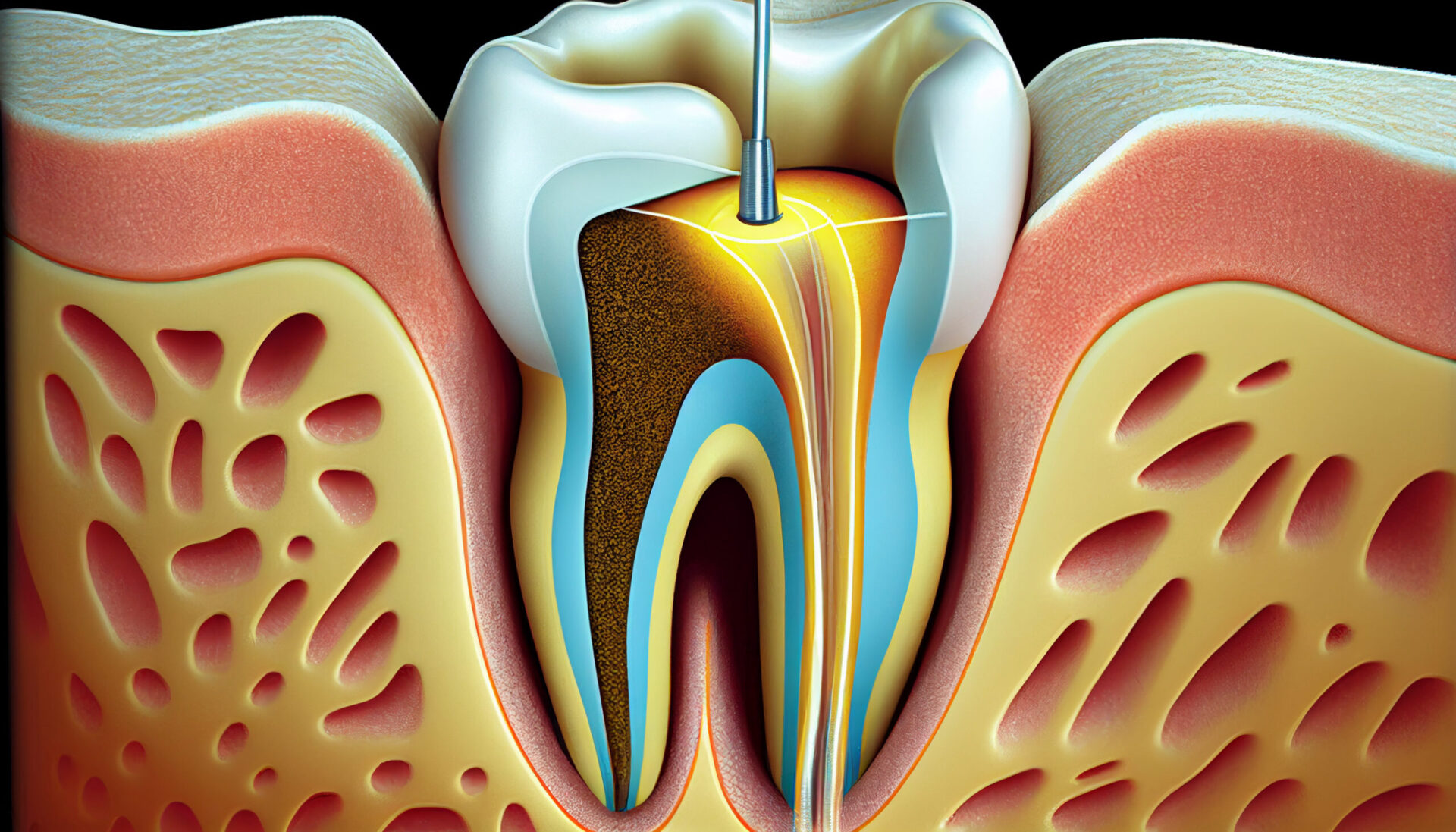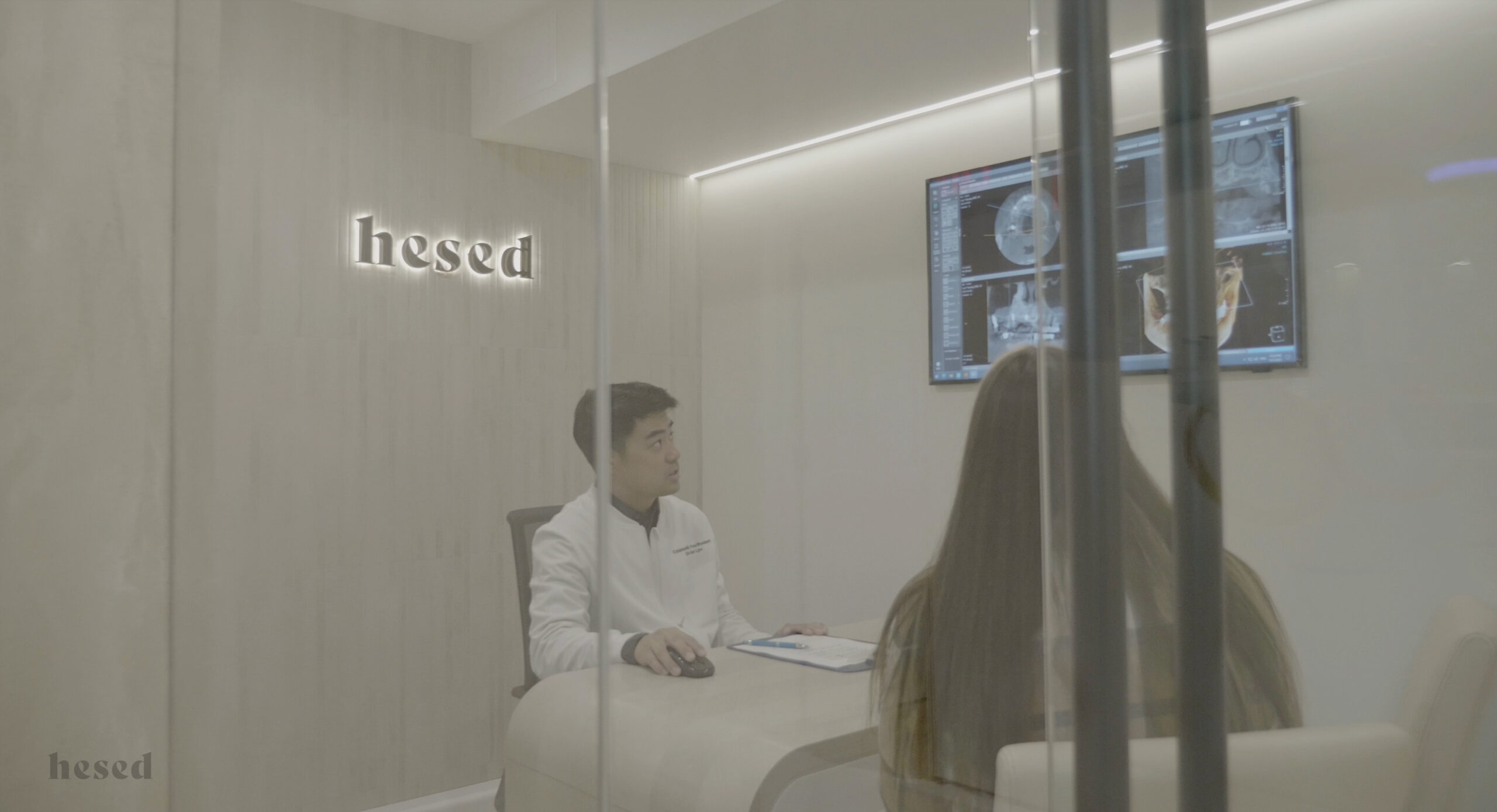Taking care of your oral health nowadays has become immensely important. The reason for this is that neglect towards oral health can lead to problems like tooth decay, tooth infection etc. When these problems become severe, you may experience unbearable tooth pain.

The threshold for each person to experience unbearable tooth pain is different. Some people get uncomfortable if they get slight caries in their tooth, while others experience severe pain with only a little caries in enamel.
Tooth pain is experienced due to the nerves which carry pain signals from the tooth to CNS in the brain. So, if you want to have relief from tooth pain, you should have an understanding of the pathway that this pain impulse travels from. If you block this pathway, you would not feel the pain anymore.
There are different types of nerve fibers for each type of sensation carried in the body. One of these fibers is unmyelinated C-fiber and myelinated Aσ-fiber, which carry pain signals. Whenever there is caries or an infection in the mouth, some chemical messengers are released, which carry pain signals from the pain site to the brain.
Depending on the severity of the malformity present, you may start to feel unbearable tooth pain.
If you block these chemical messengers, by blocking their release or blocking their target site, or you block the pathway of nerve impulse, you will not feel the pain impulse. This is where things like anesthetics come into play, which block the pain impulse pathway.
Understanding the reasons for tooth pain is important because by controlling these reasons, you can actually control the tooth pain you experience. This article will help you understand all the reasons for tooth pain so that you can take care of your oral health. It will help you improve your overall life because unbearable tooth pain can adversely affect your life, as tooth pain hinders your day to day tasks.
Although there are many reasons for unbearable tooth pain, the following list is of the most common reasons out there. Having a knowledge of these reasons will prove to be beneficial to you if you had tooth pain in the past or in the future if you experience tooth pain at any point in your life.
When we don’t brush our teeth regularly, bacteria builds up on our teeth. It feeds on the food that remains on our teeth. The by-product it produces are acids, which literally eat away the protective enamel on our teeth.
Since the protective enamel is lost, underlying dentin is exposed. Whenever the fluid in dentinal tubules is stimulated, either due to temperature changes like drinking hot or cold, or due to pressure changes, like when sneezing or using straws, it triggers the nerves.
When these nerves are triggered, these lead to tooth pain. This is why all dentists consider oral hygiene immensely important for a healthy and prosperous life.
The pink tissue that you see beneath the white colored tooth crown are your gums. These are also prone to diseases like infection, necrosis etc. How these infections start is the debate of another day. But once these are affected, the blood vessels they contain also get affected.
Since the chemical messengers in these blood vessels carry the pain signal, so as they are affected, we experience pain.
This is why it is important to take care of your gums and avoid products like chewing tobacco or nicotine containing pouches, as these are most harmful for the gums.
As mentioned earlier, bacteria build up on the tooth can lead to tooth caries (tooth decay). This bacteria can then also travel, via the dentinal tubules, to areas below or around the tooth. Once they do this, they can build up in enclosed pockets near the tooth, leading to the formation of an abscess.
Since abscess is an abnormal founding at an otherwise normal space, it puts pressure on the vessels and nerves surrounding it. This pressure ultimately leads to unbearable tooth pain.
Similar to caries (tooth decay) cracked or broken teeth are also open for bacteria to travel to the nerves below, via the dentinal tubules, or directly.
Broken tooth is far more dangerous than a tooth which is carious, because a broken tooth is subject not only to bacteria, but also to any food you eat.
If that food particle gets stuck in the place from where the tooth is broken, you will feel unbearable tooth pain and may want to visit the dentist in an emergency.
Another common reason for unbearable tooth pain is when a new tooth is starting to erupt. Although all our childhood, we experience tooth eruption but we don’t remember if that was painful or not, right?
It is because that was, indeed, not painful at all. The reason for those eruptions not being painful is that there was enough room in the mouth for any teeth to erupt. The incoming teeth did not have to do anything to make their space, so we didn’t feel anything in those eruptions.
The painful eruption that we commonly go through in our life is the wisdom teeth eruption. It can erupt till the age of 25. All other teeth are already functioning correctly in our mouth. So when a new tooth is going to come out in a crowded place, it will have to push the other teeth to make space. This process is very painful and you may start to feel unbearable tooth pain in the area of tooth eruption.
This can be avoided by visiting the dentist regularly, and if the dentist suspects your wisdom tooth eruption to be painful, he may remove it beforehand.
Mostly, whenever someone has a carious tooth, they go to the dentist and ask for a tooth-coloured filling to be done. They assume that after this filling, their tooth pain due to caries will go away. But they still feel the pain despite them getting their caries removed and tooth filled.
The same thing happens to some patients after getting crowns for their broken tooth or carious tooth.
The reason for this is that the restoration of your teeth is not done properly by the dentist. If you feel pain after getting a crown, it should subside in a few days. If it does not, it means that the fitting of the crown is not accurate and that it should be fabricated again.
If you feel pain after getting a filling, it means that there are high-spots on your filling. Having high-spots means that the anatomy of your teeth has not been designed correctly, as it was before, and this is why you are feeling the pain. Having the high-spots reduced will stop the pain sensation.
Sinuses are air filled cavities in the head and mouth region which make our head and face feel lighter. These air filled cavities can become infected due to a number of reasons.
Some of these sinuses are close to the teeth, for example the maxillary sinus. If the sinuses close to teeth are infected, the pain from these infections will be felt as if it was originating from one of our teeth, when in reality it is only sinus infection pain and not one originating from teeth.
Some people have the habit of grinding their teeth at night. Some just have this addiction of grinding their teeth, others do this when they are anxious. Whatever the reason may be of your bruxism, the results of this are very dangerous.
Teeth grinding leads to the outer layer of protective enamel to wear off, uncovering the sensitive dentin beneath. As mentioned earlier, when this sensitive dentin is triggered due to anything, unbearable tooth pain may be felt.
Thus it is important to break this habit of teeth grinding, or if you are doing it out of nervousness, it is important to calm down your nerves.
Often in injuries or road side accidents, one of our teeth do become involved. The extent to which the tooth is affected due to trauma determines whether it will cause unbearable tooth pain or not.
If the tooth is so grossly damaged, and it is involved till the pulp, or even dentin, then we may experience severe pain, which will require immediate medical assistance.
Referred pain means that the source of pain is somewhere else in your body, but that is being referred to another place which is not an original source. For example, the pain of angina, which is a condition of the heart, is referred to the shoulder.
Similarly, pain may be referred to any tooth, when in reality it has nothing to do with the tooth. For example, an abscess near the maxillary (upper) tooth may have pain which is referred to the mandibular (lower) jaw.

Now that you know the 10 most common reasons for unbearable tooth pain, you can judge yourself by looking at the symptoms due to which reason you are getting the tooth pain.
Once you know the reasons, you can know the treatment, not only for tooth pain but for any disease you have.
Tooth pain disturbs you mentally, as you are not able to do any simple tasks either. So, it is very important to take good care of your oral health, so that you do not have to go through all of this.
Do you have a toothache or think you may need a root canal? Call or find us online for a convenient appointment at Hesed Dental Clinic. Our skilled, professional staff is ready to gently and efficiently treat your dental issues. We are located at 543 Gorge Road, Cliffside Park, NJ 07010. We look forward to helping you restore optimal dental health and a natural, beautiful, pain-free smile.

Hesed Dental 543 Gorge Road Cliffside Park, NJ 07010
201 941 8877